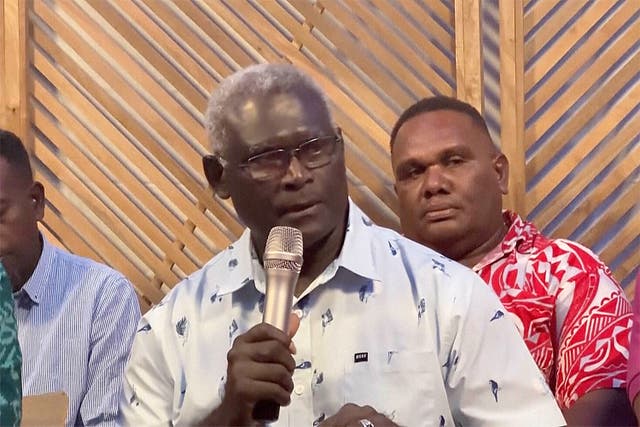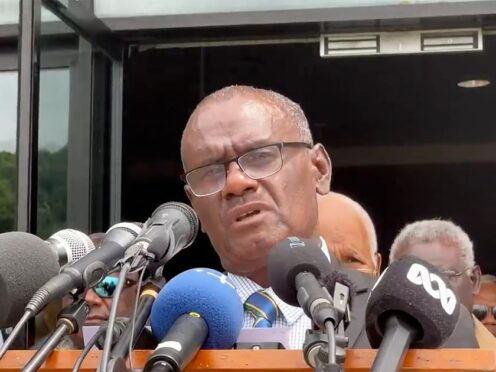Solomon Islands lawmakers elected former foreign minister Jeremiah Manele as prime minister on Thursday in a development that suggests the South Pacific island nation will maintain close ties with China.
Mr Manele used his first speech as leader to promise to govern with integrity and to put his nation’s interests first.
“I will discharge my duties diligently and with integrity. I will at all times put the interests of our people and country above all other interests,” Mr Manele said in a speech outside the National Parliament of Solomon Islands.
Mr Manele won 31 votes in a secret ballot of 49 lawmakers who won general elections on April 17, governor general David Vunagi said, while Matthew Wale, who led the opposition in the previous parliament, received the remaining 18.

The withdrawal of pro-Beijing former prime minister Manasseh Sogavare from the contest to make way for Mr Manele as their party’s candidate indicated the country could follow a similar direction.
Mr Sogavare had hoped to become the first Solomons prime minister to maintain power in consecutive four-year terms following the election.
During his previous term, China’s influence increased more in the Solomons than anywhere else in the South Pacific.
Mr Sogavare switched diplomatic recognition from Taiwan to Beijing and struck a secret security pact that has raised fears of the Chinese navy gaining a foothold in the region.
In his speech, Mr Manele also urged against any post-election violence.
“Past prime minister’s elections have been met with the act of violence and destruction. Our economy and livelihoods have suffered because of this violence,” Mr Manele said.
“However, today we show the world that we are better than that. We must respect and uphold the democratic process of electing our prime minister and set an example for our children and their children,” he added.
Mr Sogavare’s election in 2019 sparked riots in the capital Honiara over legal questions hanging over his eligibility to become prime minister.
More serious riots resulted in arson and looting in Honiara in November 2021 after his leadership survived a no-confidence motion moved by Mr Wale.
Riots following the 2006 election, which were fuelled by allegations of Chinese interference and resentment against Chinese business people, led to then-prime minister Snyder Rini’s resignation after a week in office and Mr Sogavare taking power. It was the second of Mr Sogavare’s four stints as prime minister.
Meg Keen, the director of the Pacific Islands programme for Lowy Institute, a Sydney-based international policy think tank, said Mr Manele will be a “less fiery and combative leader for the West to manage but he will continue to pursue close relations with China”.
She said: “As the former foreign minister he helped broker the security deal with China that panicked the West. But he is also a seasoned diplomat with experience at the UN and in western countries – he’s no stranger to western engagement.”
She said Mr Sogavare had pulled out of the race because his party’s loss of several lawmakers at the election was evidence that voters wanted change.
